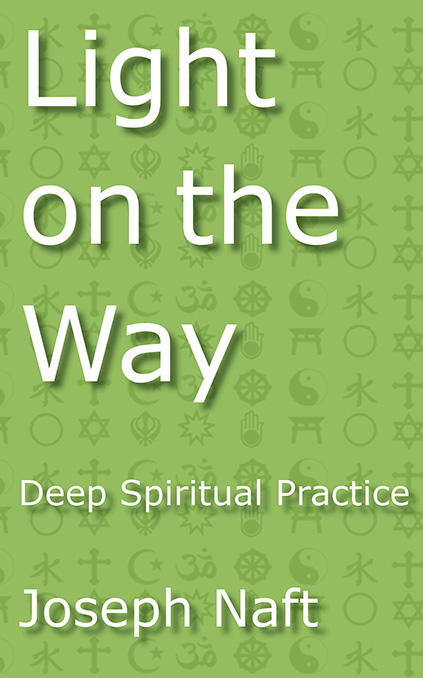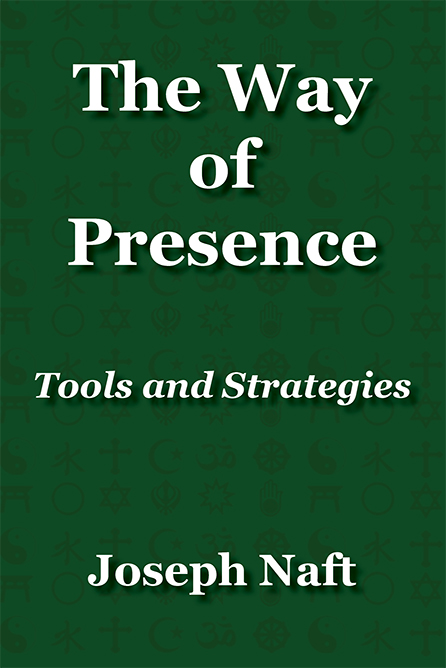|
|
Inner
Frontier Fourth Way Spiritual Practice |
|
Inner Work For the Week of April 22, 2024
IIn the article on Presence 2.0, we looked at the distinction between our I and Real I, between Personal Individuality and Universal Individuality. Now we take a step back to look at another way of developing our I, which is the core of presence. We discussed the need for working to be free in front of likes and dislikes. The one who works at that, the one who becomes free, is our I. Yet even while working in that way, we can still remain foggy about our I, groping blindly toward it, not yet being our I. We may ask Who am I and wonder what the answer is. We can, however, take a more direct approach that can clarify the matter. First, though, we need to be very clear that we are not our thoughts, not even the thought I. We can notice our thoughts, as thoughts, if we pay attention to them. They subtly convince us that we are them. When the thought "I" occurs within a phrase or a sentence in our mind, we believe that is who we are. But when we pay attention to our mind, for example in meditation, we may notice gaps between thoughts. Who are we when there are no thoughts? In those gaps we are still here, noticing. When thoughts arise to fill those gaps, we can see them, as thoughts. We can see the thought "I." And we can realize that it is just a thought, that we are not what we can see or sense, because the one that is seeing is not the seen. This shows that we are not our thoughts, not even our thought "I." If we see this clearly enough and often enough, we gradually become convinced of this truth and a moment comes when we become free in front of our thoughts, a crucial step along the way. This does not mean that we no longer have automatic, self-generated thoughts running through our mind: our biological information processing machine incessantly at work. But it does mean we no longer believe in them; we no longer believe that they are us or even that they express our will. We are free. Then we may be able to find and be our Real I. We may spend years and much effort looking for our I and not find it, because our I is the one who is looking. One good way into our I is by the practice of focused attention. When we become very focused, able to keep our attention directed to a particular object, say our breath or our body sensations, we can seek out that in us which is paying attention. Or to put it more directly, we can be the one who is paying attention. That is our I, our will. We cannot find ourselves. We cannot become ourselves at some point in the future. But we can be ourselves now. We can be the one who is directing our attention; we can be our attention. Attention is one of the powers of the will, and our I is our will. By being our attention we can be our I. You might try this now. Move back into yourself and be the one who is attending to these words, the one who is hearing and seeing in this moment. We are not our thoughts, not our emotions, not our body, not even our consciousness. We are our will, the user of our body, the author of our intentional actions, the director of our attention, the receiver of our experience. Be that one in you. Be you, in your center, in this moment, in any moment. In saying that we are our will, in being our will, we should not be misled by the usual notion of will as willpower. That only describes the active will, the active I, such as the mode involved in the intentional focusing of our attention, or in choosing what to do and following through on that choice. It is an active force, an active mode. But there are also other modes of will, such as the receptive, passive, or denying mode that we engage in contemplative prayer, in quiet meditation, in listening to music, and in being lazy. There is the reconciling, harmonizing mode, which, for example, can bring us to the unity of love. Our I can serve in any of the modes of will. The problem is that we abandon ourselves, our I going dormant, abdicating our center to our automatic mind and reactive emotions, our information processing bio-machinery, which can convincingly carry on the semblance of a life, the mirage of a person, a pseudo-I, an "I" in quotation marks. How shall we live? How will you conduct your one precious life? For this week, please practice being yourself, being your I. |
|
|
About Inner Frontier Send us email Copyright © 2001-2024 Joseph Naft. All rights reserved. |








